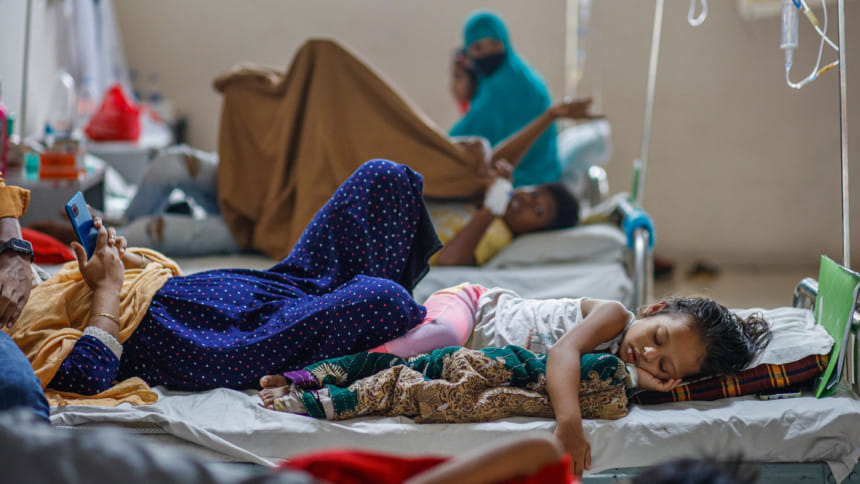Dengue cases cross 2.5 lakh mark

With 1,558 new dengue cases reported yesterday, the total number of dengue cases has surpassed 2.5 lakh, marking yet another milestone for the mosquito-borne disease this year.
According to the Directorate General of Health Services (DGHS), at least 12 people died of dengue, four of whom died outside Dhaka in the last 24 hours.
With the new deaths and cases, the total number of dengue deaths rose to 1,226 and the total number of cases rose to 251,101 this year.
Though the number of cases in Dhaka remained between 500 and 600 in recent weeks, it was between 1800 and 2,000 outside the capital.
A complete lack of planning, coordination, and accountability among the government bodies has emerged as the narrative of Bangladesh's fight against the Aedes mosquito, according to entomologists.
The starting point for any definitive large scale action is a policy that would serve as a guideline. Bangladesh's Vector Management Policy -- which is being drafted by the ministry of local government, rural development and co-operatives -- is yet to see the light of day, they said.
The authorities concerned failed to chalk out an early plan when they saw over 62,000 cases last year, said GM Saifur Rahman, assistant professor of medical and applied entomology at the National University in Gazipur.
"Failing to destroy the Aedes mosquito eggs laid towards the end of last year led to them hatching at the beginning of this year, earlier than their usual time, thanks to the shorter winter," he added.
Prof Kabirul Bashar, an entomologist at Jahangirnagar University, said since dengue has now spread to unions, local government bodies will have to be prepared to curb the Aedes mosquito population. "Equipment, logistics, manpower, and necessary training will be required in this regard."
Kholilur Rahman, former chief entomologist at DHGS, said the number of dengue infections is rising in rural areas, and these cases will start declining at the beginning of winter.
"In the meantime and also for next year, local government bodies should take the necessary steps, similar to DGHS's approach against malaria, in which immediate action is taken as soon as a single case is reported.
"The government also needs to support municipalities so they can efficiently curb dengue infections by taking the necessary actions to identify dengue hotspots and destroy dengue breeding grounds before the start of the monsoon," he added.

 For all latest news, follow The Daily Star's Google News channel.
For all latest news, follow The Daily Star's Google News channel. 



Comments